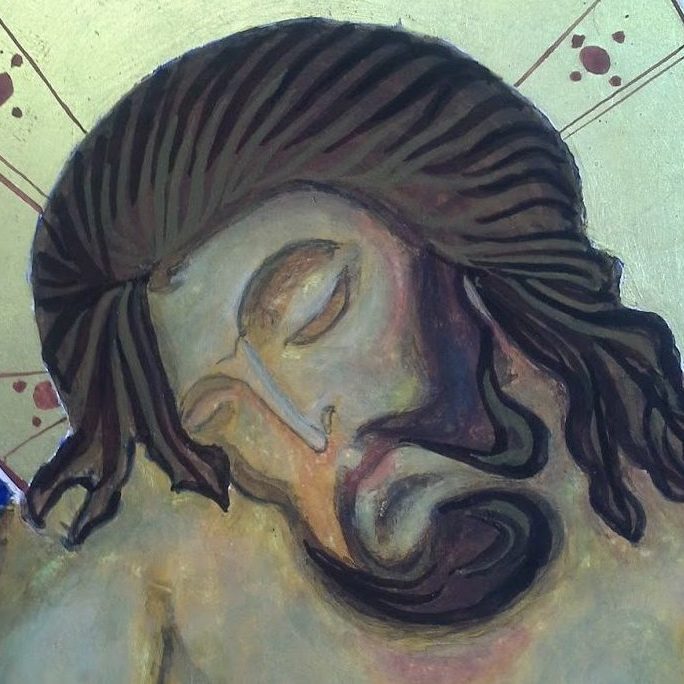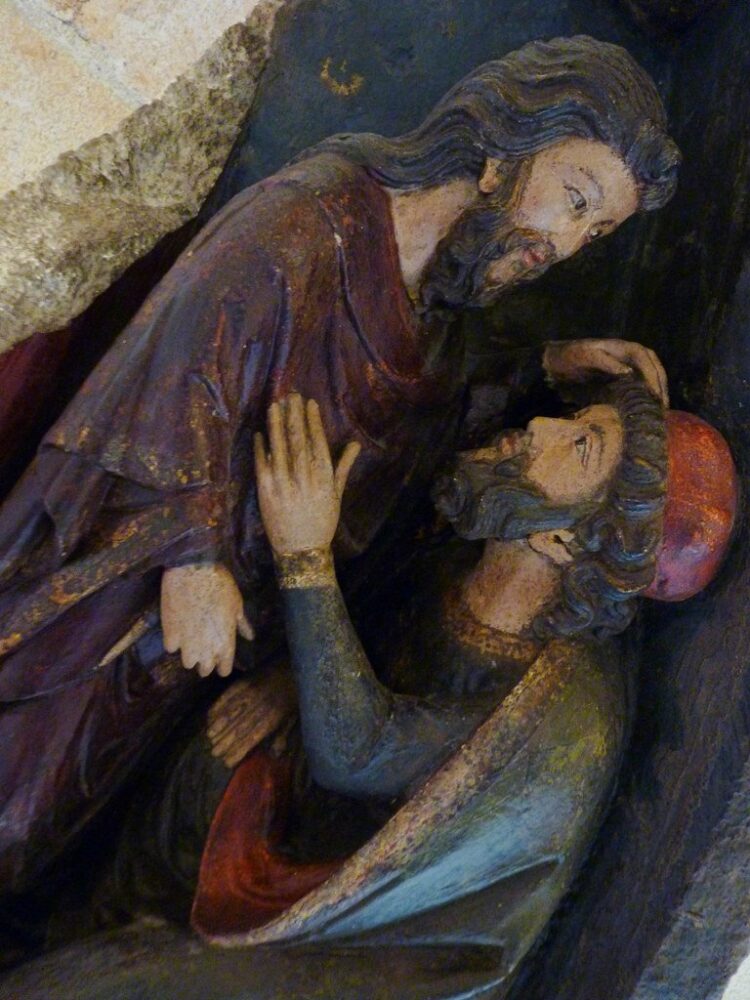Blind Bartimaeus: a familiar name to us. We know nothing much about him except that he was blind and that he was a beggar. He must have had some kind of degenerative eye disease, or perhaps he had lost his sight in an accident: his request to Jesus is that he will be able to ‘see again’, which implies he hadn’t always been blind. A disability such as blindness would very likely have resulted in living on the streets, begging for food. Some might have been lucky to have a family with sufficient resources to care, but many would not. And so Bartimaeus found himself a beggar, a man living on the fringe of society with no status and no means of keeping religious law; a man dependent on the kindness of passers by.
Bartimaeus is a man who has become defined by his disability. This is something we resist, these days – we know there is much more to people than blindness, deafness, being in a wheelchair, suffering from various syndromes or illnesses. People are much more than sickness or disability. If we look carefully at the text it is just possible to discern a few more things about Bartimaeus.
The first is that he had a good, strong voice – he knew how to make himself heard! Perhaps this was the skill of a beggar, trying to get the attention of passers. In this story, the crowd told him to shut up: he was making a nuisance of himself. But Jesus heard him, and a miracle followed.
As with Bartimaeus we must follow Jesus on the way. This is an active faith, a purposeful choosing of a way of life, a costly road to tread. May we walk this journey with Bartimaeus as our companion.
The second is that he had good hearing, and was able to work out what was happening amidst all the hustle and bustle of the city. Despite crowds of people with their accompanying noise, he was able to work out that Jesus was nearby. He also knew who Jesus was. How did he have this information? Again, perhaps that was by his ability to listen and sift what he had heard until he had worked out what was happening around him. It’s also likely that Jesus’ name was familiar to the community of people who lived on the edge of society in Jericho. By whatever means, Bartimeaus was a man who was very aware, by listening, of the world around him.
Thirdly, he seems to be a man who knows what he wants and does his best to go for it. So, we are told that he heard Jesus, he shouted at the top of his voice and, when Jesus responded, he flung off his cloak and rushed over to where Jesus was. He was able to tell Jesus very clearly what he wanted. My teacher, let me see again. We are told that Bartimaeus was healed – he was able to see once more. What must it have been like for Bartimaeus to open his eyes and look into the face of Jesus? Not only this, but opening his eyes to see Jesus looking into his eyes. What an extraordinary encounter!
Those of us who have conducted meetings and training sessions, or even family gatherings by Zoom over the last 18 months have learned that these meetings are, for the most part, a second best. How often have you heard it said that ‘face to face’ is better. We use the face as shorthand for a description of meeting together, of personal encounter. St Paul uses the same expression in his first letter to the Corinthians about our relationship with God: For now we see in a mirror, dimly, but then we will see face to face. Now I know only in part; then I will know fully, even as I have been fully known. To see someone face to face is to know them more fully: when we meet God face to face, we will be both known fully and be fully known. In an instant, this is exactly what happened to Bartimaeus – he looked into Jesus’ face and knew himself to be known, loved and healed.
There is something in this encounter that speaks to us all about our faith’s journey. Psalm 27 puts it well:
Hear, O Lord, when I cry aloud,
be gracious to me and answer me!
‘Come,’ my heart says, ‘seek his face!’
Your face, Lord, do I seek.
Do not hide your face from me.
To speak of seeking God’s face is to speak about knowing God. This is the work of a lifetime and beyond, something in which Christians must persist. On this journey, Bartimeaus is our guide. Alongside him we can learn to pinpoint the voice of Jesus amidst the many voices and sounds of the world around us. Today’s world is very noisy; cars, phones, sirens, televisions; a multitude of ideas, beliefs, ideologies; people clamouring to tell us how to behave, what to believe, what we need. Amidst all this noise we, too, must learn to pinpoint Jesus’ voice and come to him with our needs, our prayers.
Alongside Bartimaeus we can call out to God: his words, Jesus, Son of David, have mercy on me, are a most profound prayer of the heart. We too must call out to God, silently or in words, asking for God’s mercy and help; our heart’s desire.
With Bartimaeus, we must seek to see God’s face. In that face to face encounter we know God’s love, healing and forgiveness – that is the centre of the encounter – what is held in that two-way gaze.
Tweet
